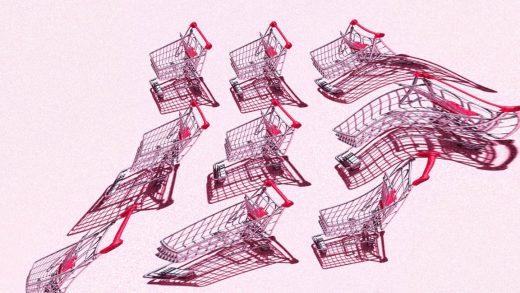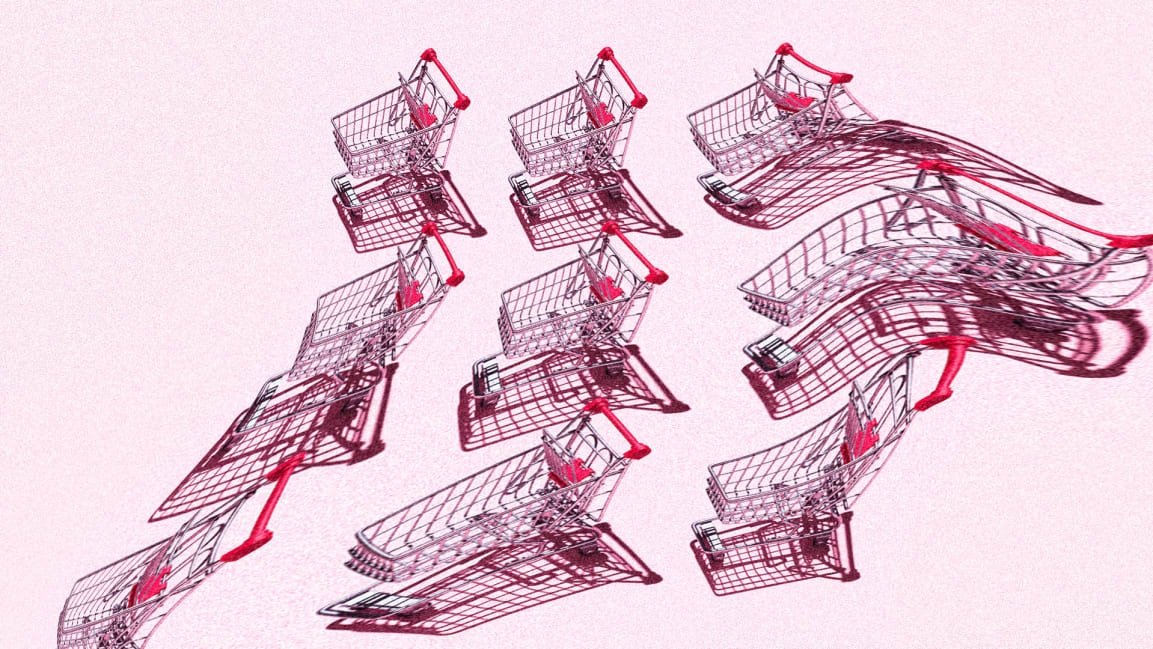Grocery delivery apps rethink their 15-minute pledges as NYC mulls a crackdown
America’s sudden swarm of 15-minute grocery delivery apps is starting to face scrutiny from lawmakers who are concerned that these platforms may be hazardous to both workers and the local communities they’re racing through.
In the past year, a glut of these startups popped up: Gorillas, Fridge No More, Getir, Jokr, Buyk, Gopuff, 1520, FastAF, and even DoorDash with an offshoot it’s calling DashCorps. Their shtick is to promise deliveries so fast it almost sounds too good to be true—sometimes in “10 minutes or less“—for thousands of items sitting on shelves in ghost stores scattered strategically around cities. The companies hire workers (some of them full-time) whose job is to load up orders, and hotfoot them over to customers’ doorsteps.
In New York City, Council Member Christopher Marte, who represents District 1 in Lower Manhattan, believes this ambitious pledge of grocery deliveries in mere minutes “creates a lot of risk, a lot of pressure, and a lot of stress on these workers.” The companies typically limit their deliveries to a 1- to 1.5-mile radius of the ghost store. But New Yorkers know what sort of radius 15 minutes buys you, door to door; Marte believes this disconnect frazzles riders, and can pressure them into running red lights, riding against traffic on one-way streets, veering onto sidewalks, and violating other traffic laws. He has crafted a bill, which he plans to introduce in the coming weeks, that would ban these on-demand delivery sites from marketing 15-minute turnarounds to customers. It’s part of a broader package of legislation he has drafted that will seek to “bring a lot more oversight and accountability” to these startups’ operations.
“We are still in the very preliminary stages,” Marte told Fast Company in an email, but they will seek to address “the labor concerns with these companies, as well as their impact on New York’s beloved bodegas.” He explained: “This is just like what Uber and Lyft did to yellow taxis and black-car services. They undercut the prices, disrupted the market, then raised the cost after they eliminated the competition.”
Marte’s father was a bodega owner until a rent hike forced the store to close. The pandemic has already caused bodegas financial hardship, but these app-based delivery services are now swooping in, offering convenient delivery and (sometimes) lower prices. They can do this because most are backed by venture capital, meaning they don’t have to turn a profit immediately. Moreover, Marte argues, their large “dark stores” contribute no sense of community to the neighborhoods they’re in.
Beyond banning the promise of 15-minute deliveries, Marte’s proposed legislation will address other worker protections, such as capping a weight limit on orders. Workers typically carry orders in bags or packs; heavy orders make accidents more likely and dangerous, not to mention the constant strain they put on workers’ bodies.
Marte sees what’s already happening in Europe as a canary in the coal mine. Many of these ultrafast-delivery services got their start there; his office managed to contact several delivery workers in European cities to understand what New York could be up against. “We actually spoke with some Gorillas workers [in Berlin], who gave us a lot of insight into their fight against these companies’ labor practices,” Marte said.
Gorillas’ handling of its German workers caused a public backlash not just in Europe, but in New York,too. Last year, as the startup was raking in almost 10 figures in VC funds, media reports were chronicling how its workers were striking over unpredictable payments, bike malfunctions, and firings without warning. An organizing group, the Gorillas Workers Collective, sprung up. Shortly after strikes began in Berlin, the company fired hundreds of the workers who were involved.
In a statement to Fast Company, the company’s U.S. head of operations, Adam Wacenske, said, “At Gorillas, we put our riders first. Always.” From day one, he added that Gorillas gives workers “everything they need to do their job both safely and efficiently,” including safety kits that contain helmets, reflective vests, and cold-weather and rain gear. “We have never favored fast delivery at their risk, which is why we opted to update our promise to offer delivery in minutes rather than in a specific amount of time, shortly after launch last year.”
Getir, a Turkish company that entered the New York market in December and promises “ultrafast 10-minute grocery deliveries,” also responded to Fast Company‘s request for comment. Its Twitter bio reads, “We deliver groceries in around 10 minutes. Yes, really!” But in its statement, it noted, “At Getir, we do not promise exact delivery times, and we never push our delivery riders for faster deliveries.” Getir’s app offers an order ETA within a certain timeframe, though Getir did add it’s “in an average of 10 minutes.” The company said: “We are committed to ensuring the safety of our employees. We welcome the opportunity for further discussions with city officials.”
Two of the other major on-demand grocery services in New York, Jokr and Fridge No More, didn’t respond to requests for comment. Jokr is reportedly in talks right now to sell its New York operations, which comprise the bulk of its U.S. business, after encountering heavy losses in the City. The Information reported in late January that the startup has reached out to rivals, including Getir, to discuss a potential sale.
(23)



